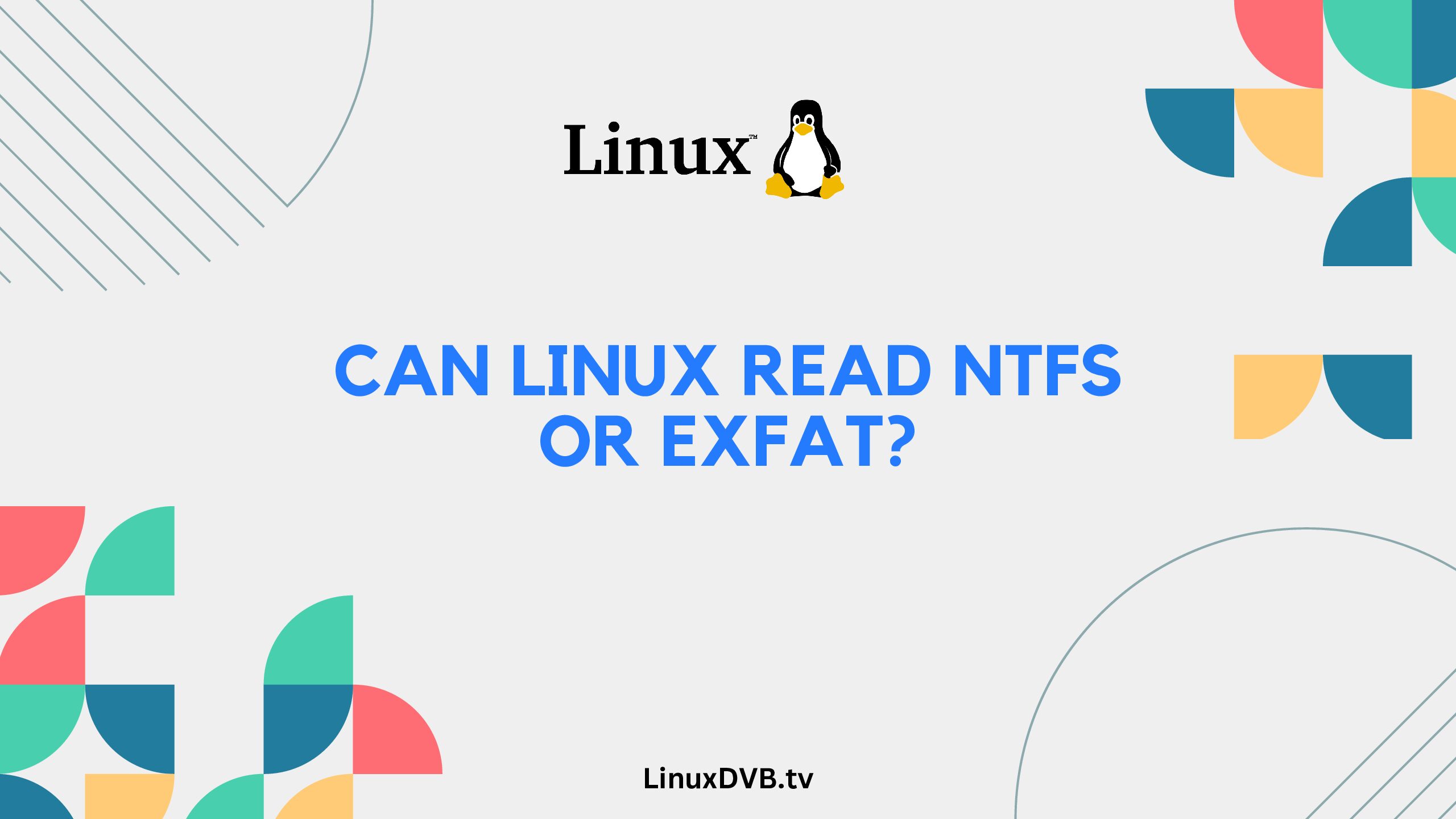Introduction
Linux, known for its versatility and open-source nature, has gained immense popularity over the years. If you’re someone who frequently deals with different file systems, you might be wondering, “Can Linux read NTFS or Exfat?”
In this comprehensive guide, we’ll delve into the compatibility of Linux with these file systems, exploring their intricacies, tools, and workarounds. By the end of this article, you’ll have a clear understanding of Linux’s abilities to handle NTFS and Exfat, enabling you to make informed decisions regarding data storage and access.
Table of Contents
Can Linux read NTFS?
Linux has made substantial progress in terms of NTFS compatibility, allowing users to access and interact with NTFS-formatted drives. This capability is made possible by the ntfs-3g driver, which is widely used to mount and read NTFS partitions. The ntfs-3g driver is highly reliable and well-maintained, ensuring seamless file access between Linux and NTFS.
Using the ntfs-3g Driver
The ntfs-3g driver enables Linux systems to not only read but also write to NTFS partitions. This feature is particularly useful for users who need to exchange data between Windows and Linux platforms without the need for complicated workarounds. By utilizing the ntfs-3g driver, Linux users can effortlessly access their NTFS-formatted external drives, internal partitions, and USB devices.
Can Linux read Exfat?
Exfat, a file system optimized for flash drives and memory cards, has also found its way into the Linux ecosystem. While Exfat is not natively supported by Linux, several tools and drivers have been developed to bridge this gap.
Exfat-Fuse: Bridging the Gap
Exfat-Fuse is a popular solution for Linux users seeking Exfat compatibility. It’s a user-space file system implementation that allows Linux to read and write to Exfat-formatted drives. This tool has gained significant traction due to its ease of use and reliability. Exfat-Fuse ensures that Linux users can effortlessly access files stored on Exfat drives, enhancing cross-platform compatibility.
Exploring Limitations and Workarounds
While Linux’s compatibility with NTFS and Exfat is commendable, it’s important to be aware of certain limitations and potential workarounds.
Permissions and Ownership
Linux, being a multi-user system, enforces permissions and ownership on files and directories. When accessing NTFS or Exfat drives, permissions and ownership might behave differently compared to Windows. It’s essential to consider this aspect to ensure a seamless experience while transferring and accessing files across platforms.
Third-Party Tools
For scenarios where native compatibility falls short, Linux users can turn to third-party tools that provide enhanced functionality. These tools, often developed by the open-source community, expand Linux’s capabilities to handle diverse file systems. While using such tools, it’s recommended to thoroughly research and choose options that align with your requirements and preferences.
Frequently Asked Questions (FAQs)
Can Linux mount and read NTFS partitions?
Yes, Linux can mount and read NTFS partitions using the ntfs-3g driver. This driver ensures reliable access to NTFS-formatted drives, both internal and external.
Can Linux write to NTFS partitions?
Yes, Linux can write to NTFS partitions using the ntfs-3g driver. This capability enables bidirectional data exchange between Linux and Windows systems.
Is Exfat-Fuse a safe option for Linux users?
Yes, Exfat-Fuse is a safe and reliable option for Linux users looking to access Exfat-formatted drives. It offers read and write capabilities, enhancing cross-platform data compatibility.
Are there any limitations to using NTFS and Exfat on Linux?
While Linux’s compatibility with NTFS and Exfat is robust, users should be mindful of permission and ownership differences between Linux and Windows. Additionally, third-party tools might be required for specific scenarios.
What are some popular third-party tools for file system compatibility?
Tools like Exfat-Fuse, ntfs-3g, and exfat-utils are popular among Linux users seeking enhanced file system compatibility. These tools bridge the gap between Linux and non-native file systems.
Can Linux read other file systems as well?
Yes, Linux supports a wide range of file systems beyond NTFS and Exfat. Some examples include ext4, btrfs, and xfs, each with its own strengths and features.
Can Linux read NTFS or Exfat?
Yes, Linux can read both NTFS and exFAT file systems.Does Linux use exFAT?
Yes, Linux can use exFAT file system.Can Linux read exFAT files?
Yes, Linux can read exFAT files.Can exFAT be read by Windows and Linux?
Yes, exFAT can be read by both Windows and Linux.Can exFAT be used in Linux?
Yes, exFAT can be used in Linux.Does Linux support exFAT drives?
Yes, Linux supports exFAT drives.Should I use exFAT or NTFS for Linux USB?
exFAT is generally recommended for Linux USB drives due to better compatibility.Is exFAT better for Linux?
exFAT is often a better choice for Linux due to its compatibility and ease of use.Conclusion
In conclusion, Linux’s compatibility with NTFS and Exfat is a testament to its adaptability and community-driven development. The ntfs-3g driver and Exfat-Fuse have played pivotal roles in enabling Linux users to seamlessly access and interact with NTFS and Exfat file systems. While there are certain considerations and workarounds to keep in mind, the Linux ecosystem provides a robust set of tools for handling diverse file systems. So, whether you’re transferring files between Windows and Linux or simply looking for efficient data storage solutions, Linux has you covered.

